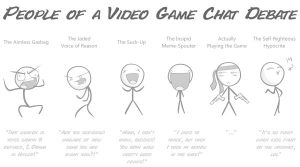
Chess Chat is as filled with acrimonious debate as any political forum and, while watching the first round of the Norway Chess Tournament an instructive moment occurred which I will wax on about today. Don’t be too distressed, the topic isn’t primarily chess, or chess chat, it’s how to have a productive debate.
In this case the chess chat included a hearty exchange, including nasty insults as per usual, between two interlocuters debating as to which chess format, blitz or classical was more interesting, or more to the point whether or not classical chess is boring. Of some note but not important to the point is that one of the debaters is essentially the chief sponsor of chess in the United States. He took the side that classical chess was more interesting while an unknown but equally belligerent opponent took the opposite view.
Don’t worry, the chess talk is finished. What is important to understand is the nature of the question being debated and how to arrive at an objective answer. One side of the debate posited that a particular thing was more boring than another thing of largely the same nature.
What is the first thing to understand in order to arrive at a conclusion to this debate? What is boring, how do we define boring in this context, it must be determined. We cannot have any meaningful answer until we do so. Now, there are a number of ways to do this, but what is vitally important to understand is that neither of the two challengers made any attempt to do so.
They simply wrote facts back and forth at one another. This many people watched that tournament, so many people watched the other tournament. The quality of play in this style is better than the other style. It was endless, pointless, and much to the dismay of most of the people in chat, hideously boring. No one got anywhere except to clog up the chess chat with their ranting and most certainly, no one’s opinions were changed. Meanwhile, there was some quite interesting chess being played that the two debaters completely ignored.
The lesson is simple enough, you can’t arrive at an objective answer without defining what it is you are debating. A lesson neither of the two debaters understood or, frankly, are ever likely to understand.
Thus ends the lesson, young Ionians. Go outside to practice your Phalanx maneuvers and we shall return to the problem on the morrow.
Tom Liberman